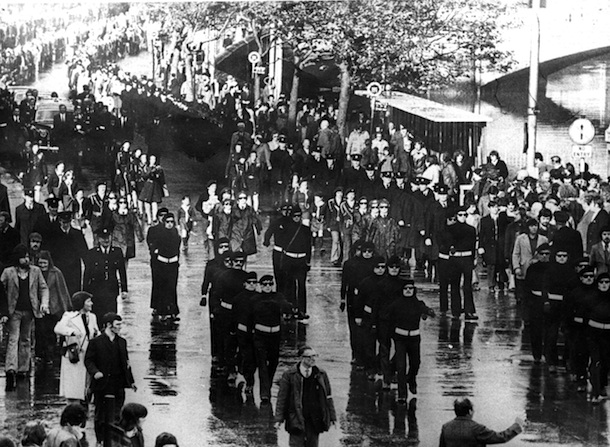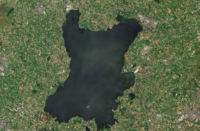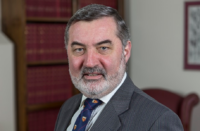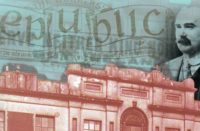The tricolour that draped Michael Gaughan’s coffin was used for Terence McSwiney’s funeral, contributed by life-long Communist Party member Muriel MacSwiney, widow of Terence MacSwiney.
During the people’s resistance against injustice in the North of Ireland, it was said that ordinary people did extraordinary things. This could be said of Michael Gaughan who died after 64 days on hunger strike in Parkhurst Prison.
Michael Gaughan was born on 5 October 1949 in Ballina Co, Mayo and like many of his generation emigrated to England in search of employment. He subsequently converted to socialism when he became involved with Clann na hEireann (Official Sinn Féin) – an organisation openly declaring itself Marxist and republican – and eventually becoming the Manchester organiser for the group. He left Clan na hEireann dissatisfied with the pace in getting a campaign underway in the north and joined the emerging Provisional IRA.
An important activity from early on was performing bank raids to fund the group. In May 1971 Michael with three others were arrested for expropriating finance from the Midland Bank in Hornsey, North London. In December he was sentenced at the Old Bailey to seven years imprisonment.
On 31 March 1974, Michael joined a hunger strike with other Irish political prisoners in English prisons to obtain political status and be transferred to a jail in Ireland. The British establishment ordered the process of force-feeding the hunger strikers. Prison warders dragged them by the hair to the top of the bed, where they would stretch the prisoner’s neck over the metal rail, force a block between the teeth and then pass a feeding tube, which extended down the throat, through a hole in the block. The prison doctors injured him fatally when food lodged in a lung punctured by a force-feeding tube. Michael died on Monday, 3 June 1974, in Parkhurst Prison on the Isle of Wight. It was revealed at Michael’s inquest that at the time of his death his mouth and throat had been badly cut, with some of his lower teeth knocked out.
On Saturday 8 June, one of the largest republican funerals passed through the Kilburn area of London on its long journey from the Isle of Wight to Ballina. From Dublin to Mayo, people turned out to pay their last respects to this young revolutionary martyr.
During the funeral on Sunday at Leigue Cemetery, Ballina, a volley of shots was fired by the IRA in a salute over his coffin. The graveside oration was given by Dáithí Ó Conaill who was at the time one of the most wanted people in Ireland.
“I used to think the separation of Ireland from England impossible. I now think it inevitable.” – Karl Marx, 2 November,1867.






